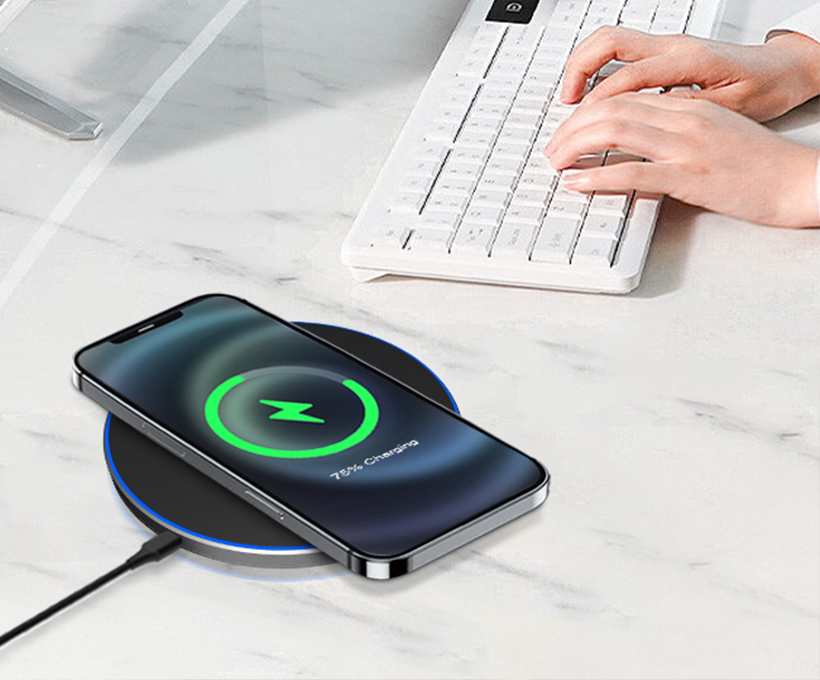Address
304 North Cardinal
St. Dorchester Center, MA 02124
Work Hours
Monday to Friday: 7AM - 7PM
Weekend: 10AM - 5PM
Address
304 North Cardinal
St. Dorchester Center, MA 02124
Work Hours
Monday to Friday: 7AM - 7PM
Weekend: 10AM - 5PM

In general, wired charging is faster than wireless charging. While wireless charging offers convenience and eliminates the need for physical cables, it tends to be slower compared to wired charging. Here are a few reasons why wired charging is typically faster:
Power Transfer Efficiency of wired charging is higher than that of wireless charger. Wired charging provides a direct and efficient connection between the charger and the device. The power travels through the cable with minimal energy loss, resulting in faster charging speeds. On the other hand, wireless charging involves the conversion of electrical energy into an electromagnetic field, its transmission through the air, and reconversion into electrical energy in the device. These conversion and transmission processes introduce some energy loss, which can slow down the charging speed.
Power Delivery Capability is different. Wired charging often supports higher power delivery compared to wireless charging. Many wired charging technologies, such as USB Power Delivery (USB PD), can provide higher wattage, allowing for faster charging. In contrast, wireless charging standards typically have lower power delivery capabilities, which can limit the charging speed.
More heat energy is emitted during wireless charging. Wireless charging can generate more heat compared to wired charging. The energy transfer through the air can lead to heat dissipation, and inefficient charging alignment can cause localized heating. To prevent overheating and ensure safety, wireless charging systems often reduce the charging speed or temporarily pause charging to manage heat. Wired charging, on the other hand, can handle higher power levels without significant heat-related limitations.
It’s important to note that charging speeds can vary depending on the specific device, charger, and charging protocols used. Technological advancements may improve wireless charging speeds in the future, but currently, wired charging remains the faster option for most devices.